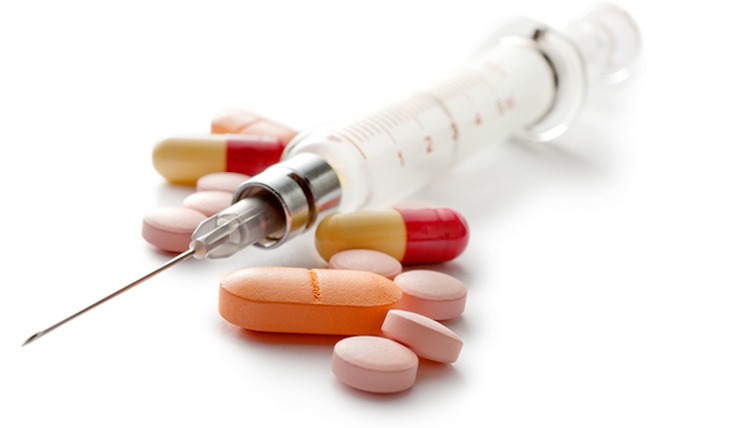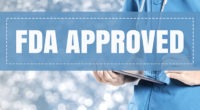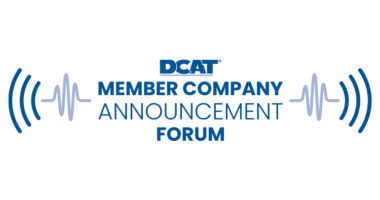Blockbuster Watch: Market Entrants for 2017
Which drugs entering the market are poised as blockbusters? DCAT Value Chain Insights examines the contenders for this year.
A recent analysis by Clarivate Analytics points to nine drugs entering the market this year that are expected to reach sales of at least $1 billion by 2021. So which drugs are making the mark?
Leaders of the pack
The Clarivate Analytics study, Drugs to Watch 2017, points to eight drugs projected to be launched in 2017 that are projected for blockbuster status (defined as sales of $1 billion or more) by 2021, and one additional drug slated for near blockbuster status by 2021 (see Table I at end of article). Ranked by highest sales forecast for 2021, the expected blockbuster 2017 launches are: Roche’s Ocrevus (ocrelizumab) for multiple sclerosis (MS); Regeneron and Sanofi’s Dupixent (dupilumab) for a common form of eczema; AstraZeneca’s durvalumab for cancer; Novo Nordisk’s semaglutide for Type 2 diabetes; Eli Lilly and Company’s and Incyte’s Olumiant (baricitinib) for rheumatoid arthritis; Novartis’s Kasqali (ribociclib) for cancer; Merck Serono and Pfizer’s Bavencio (avelumab) for cancer; Tesaro’s Zejula (niraparib) for cancer; and Kite Pharma’s KTE-C19 for hematological cancer, projected for near blockbuster status by 2021 and an example of a new class of cancer treatments, autologous T-cell therapies.
Roche’s Ocrevus (ocrelizumab). Roche’s Ocrevus (ocrelizumab) is expected to materially disrupt the MS market when it launches in the second quarter of 2017, according to the Clarivate report. The drug was approved by the US Food and Drug Administration (FDA) in March 2017. Ocrevus is a first-in-class anti-CD20 antibody, and it showed positive results in reducing the annualized relapse rate in MS and is the first drug to prove effective in primary progressive MS. The Clarivate report points out that initial market share gains are likely in the second line behind oral options and in severe patients on Biogen’s Tysabri (natalizumab) who are at risk of progressive multifocal leukoencephaolopathy, but adoption in naive patients may be expected in the medium term as prescriber familiarity builds. Clarivate projects 2021 sales of $3.3 billion, putting the drug at the top of the list for market entrants in 2017.
Sanofi’s and Regeneron’s Dupixent (dupilumab). Sanofi’s and Regeneron Pharmaceuticals’ Dupixent (dupilumab) is a human monoclonal antibody that is designed to specifically inhibit overactive signaling of two key proteins, IL-4 and IL-13, which are believed to be major drivers of the persistent underlying inflammation in atopic dermatitis (AD), a common form of eczema. The drug was approved by the FDA in March 2017 for treating moderate-to-severe AD whose disease is not adequately controlled with topical prescription therapies, or when those therapies are not advisable. Clarivate projects 2021 sales of $2.8 billion.
AstraZeneca’s (durvalumab). The first biologics license application filing for AstraZeneca’s PD-L1 antibody, durvalumab, was accepted in December 2016 in bladder cancer, and through priority review, it is expected to launch in the second half of 2017. The Clarivate report points out that while the drug will provide a meaningful treatment option in the bladder cancer setting, it is in lung cancer where the most notable sales are expected. Additional clinical data in non-small-cell lung cancer is expected later this year, which could set the stage for a filing in that indication and potentially offering a competitive alternative to other immunotherapies: Bristol-Myers Squibb’s Opdivo (nivolumab) and Merck & Co.’s Keytruda (pembrolizumab). Projected 2021 sales are $2.0 billion.
Novo Nordisk’s semaglutide. Novo Nordisk’s semaglutide for Type 2 diabetes is the company’s latest entry in its diabetes franchise. Novo Nordisk’s weekly glucagon-like peptide 1 (GLP1) analog, semaglutide, was filed in December 2016, and launch is expected by the end of 2017. Assuming approval, semaglutide will be the fourth weekly GLP-1 analog to market, behind Eli Lilly’s Trulicity (dulaglutide), GlaxoSmithKline’s Tanzeum (albiglutide), and AstraZeneca’s Bydureon. The Clarivate report notes that it is Novo’s once- daily oral formulation of the drug that may be expected to be practice-changing in Type 2 diabetes. After encouraging Phase II data, Novo Nordisk began the Phase III studies of oral semaglutide in 2016, the first of which is expected to read out in 2018. “Success could mean earlier switching from small molecule oral antidiabetics, which would have significant market implications,” notes the report. Projections for 2021 are $1.9 billion.
Eli Lilly’s and incyte’s Olumiant (baricitinib). Eli Lilly’s and incyte’s Olumiant (baricitinib), a drug for treating rheumatoid arthritis, suffered a setback in April 2017 when the companies received a Complete Response Letter (CRL) from the FDA or their new drug application (NDA), indicating that the FDA is unable to approve the application in its current form. The FDA is specifically seeking additional clinical data to determine the most appropriate doses of the drug and to further characterize safety concerns across treatment arms. Lilly and Incyte submitted the NDA for baricitinib to the FDA in January 2016, and in January 2017 announced that the FDA’ provided a three-month extension to allow time for review of additional data analyses.
Baricitinib, a Janus kinase (JAK) inhibitor, is currently in clinical studies for inflammatory and autoimmune diseases. The drug was recently approved in the European Union under the brand name Olumiant (baricitinib) in 4-mg and 2-mg dose tablets in February 2017 for treating moderate-to-severe active rheumatoid arthritis. The drug is currently being studied in Phase II trials for atopic dermatitis and systemic lupus erythematosus, and a Phase III trial for psoriatic arthritis is expected to be initiated in 2017. Prior to the CRL, the drug was projected for blockbuster status by 2021 with forecast sales of nearly $1.3 billion. Anticipated gains in market share, if the drug is approved, is expected from other JAK inhibitors, primarily Pfizer’s Xeljanz (tofacitinib), but with building prescriber familiarity, the drug could move ahead of TNF inhibitors in this area, according to the Clarivate report.
Novartis’ Kisqali (ribociclib). Novartis’ Kisqali (ribociclib), an anti-cancer drug, is a highly selective CDK4/CDK6 inhibitor, which was approved by the FDA in 2017 for treating HR-positive, HER2-negative first-line breast cancer, was launched in the US in March 2017. The drug will compete with Pfizer’s CDK4/6 inhibitor, Ibrance (palbociclib), a strong competitor and earlier market entry that was launched in early 2015. Forecasts for 2021 for the drug are nearly $1.3 billion.
Merck Sereno and Pfizer’s Bavencio (avelumab). Merck KGaA’s and Pfizer’s Bavencio (avelumab) is a fully human anti-PDL1 antibody expected to enter the market in third quarter of 2017 in its first cancer setting of second-line metastatic Merkel cell carcinoma, a rare form of skin cancer, for which it received FDA approval in March 2017. Avelumab is part of the immunotherapy alliance that Pfizer and Merck KGaA formed in November 2014 under which the companies will collaborate on up to 20 high priority immuno-oncology clinical development programs, including combination trials. The clinical development program for avelumab involves study of more than 15 tumor types, including breast cancer, gastric/gastroesophageal cancer, head and neck cancer, Merkel cell carcinoma (an aggressive form of skin cancer), mesothelioma, melanoma, non-small cell lung cancer, ovarian cancer, renal cell carcinoma, and urothelial (e.g. bladder) cancer. Phase III cinical trials for ovarian cancer are ongoing with data expected in 2018 for 2019. Forecast 2021 sales are $1.2 billion.
Tesaro’s Zejula (niraparib). Ovarian cancer presents the first commercial opportunity for Tesaro’s Zejula (niraparib), an oral, once-daily poly(ADP-ribose) polymerase (PARP) inhibitor. The drug was approved by the FDA in March 2017 for the maintenance treatment of women with recurrent epithelial ovarian, fallopian tube or primary peritoneal cancer who are in a complete or partial response to platinum-based chemotherapy. Notably, niraparib also improved progression-free survival in BRCA-negative patients (12.9 versus 3.8 months), which would allow use in a much larger population than targeted by a competitor, AstraZeneca’s Lynparza (olaparib). The drug was approved by the FDA in March 2017 for the maintenance treatment of women with recurrent epithelial ovarian, fallopian tube or primary peritoneal cancer who are in a complete or partial response to platinum-based chemotherapy. Projected sales are nearly $1.1 billion.
Kite Pharma’s axicabtagene ciloleucel (KTE-C19). Kite Pharma’s KTE-C19 is an autologous T-cell therapy expressing a cancer antigen specific for CD19, which is a B cell marker.T-cells engineered against cancer antigens (CAR-T) are a new area of cancer treatment, and Kite Phama is hopeful it can be the first company to bring a CAR-T therapy to market with KTE-C19, following the initiation of a rolling filing in aggressive B-cell non-Hodgkin’s lymphomas (NHL) in December 2016. The company hopes to launch the drug at the very end of 2017. A number of other studies are ongoing or planned in mantle cell lymphoma, adult and pediatric acute lymphocytic leukemia, indolent NHL, and chronic lymphocytic leukemia. The Clarivate report points out that early market access may depend initially on building scientific awareness among prescribers, and an efficient and consistent manufacturing process. The drug is projected for near-blockbuster status with sales of more than $900 million in 2021.
| Table I: Projected Blockbusters Entering the Market in 2017 (data as of March 31, 2017) | ||||||||
| Ranking | Drug (Proprietary Name and Active ingredient | Indication | Company | Projected 2017 Sales (US$ in millions) | Projected 2018 Sales (US$ in millions) | Projected 2019 Sales (US$ in millions) | Projected 2020 Sales (US$ in millions) | Projected 2021 Sales (US$ in millions) |
| 1 | Ocrevus (ocrelizumab) | Multiple sclerosis | Roche | $316.4 | $941.2 | $1,706.80 | $2,436 | 3,327.80 |
| 2 | Dupixent (dupilumab) | Allergic conditions, primarily atopic dermatitis | Regeneron and Sanofi | $150.9 | $591.5 | $1,286.10 | $2,087.20 | $2,808.2 |
| 3 | Durvalumab | Cancer, primarily lung, bladder and head & neck cancer | AstraZeneca | $16.4 | $278 | $954.6 | $1,614.80 | 2,055.90 |
| 4 | Semaglutide | Type 2 diabetes | Novo Nordisk | $18 | $357.46 | $842.96 | $1,414.01 | $1,937.56 |
| 5 | Olumiant (baricitinib) | Rheumatoid arthritis | Incyte and Lilly | $144.6 | $433 | $742.4 | $1,045.20 | $1,282.50 |
| 6 | Kasqali (ribociclib) | Cancer, primarily breast cancer | Novartis | $133.1 | $428.8 | $697.2 | $1,016.70 | $1,277.70 |
| 7 | Bavencio (avelumab) | Cancer, primarily Merkel cell carcinoma and lung | Merck Serono and Pfizer | $45.8 | $165.4 | $462.6 | $846.7 | $1,229.60 |
| 8 | Zejula (niraparib) | Cancer, primarily ovarian cancer | Tesaro | $23.2 | $154.9 | $416.9 | $687.5 | $1,078.70 |
| 9 | Axicabtagene ciloleucel (KTE-C19) | Hematological cancer, primarily non-Hodgkins lymphoma | Kite Pharma | $0 | $124.7 | $356.4 | $610.8 | $917.5 |
Source: Clarivate Analytics






